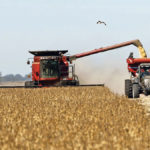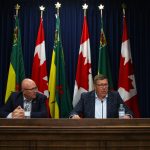WINNIPEG – The following is a glance at the news moving markets in Canada and globally.
– The United States Bureau of Labor Statistics reported on Friday that the country’s inflation rate reached 6.8 per cent in November, the highest level since 1982 and 0.8 percentage points higher than in October. Higher costs in gasoline, shelter, food and vehicles (used and new) were factors in the rate increase. Officials from the Federal Reserve will meet next week where it is expected they will decide to wind down the central bank’s bond buying program.
Read Also
Global Markets: French/Nepali prime ministers resign
Glacier FarmMedia — The following is a glance at the news moving markets in Canada and globally. French Prime…
– Olaf Scholz was sworn in as the new Chancellor of Germany on Wednesday, replacing Angela Merkel after 16 years as leader. Scholz, the former finance minister and vice-chancellor who leads the centre-left Social Democrats, will govern in a coalition with the Greens and the business-friendly Free Democrats. His government plans to tackle the COVID-19 pandemic and climate change as well as raise the minimum wage.
– The Insurance Bureau of Canada estimated on Thursday that the insured damage from the floods in British Columbia will total C$450 million, which would be the most costly severe weather event in the province’s history. The figure is also in addition to the C$155 million in damage from the province’s wildfires last summer. However, overall costs are expected to be higher because many landowners do not have flood insurance.
– Workers at a Starbucks location in Buffalo, N.Y. have voted on Thursday to unionize, a first for the coffee retailer in the U.S. Two other locations in the city also cast ballots whether or not to unionize with the tabulation of both votes still in question. Local baristas claim executives and even former Starbucks CEO Howard Schultz held meetings with employees in an attempt to dissuade them from voting to join a union. Starbucks claimed its activities were not union-busting.










